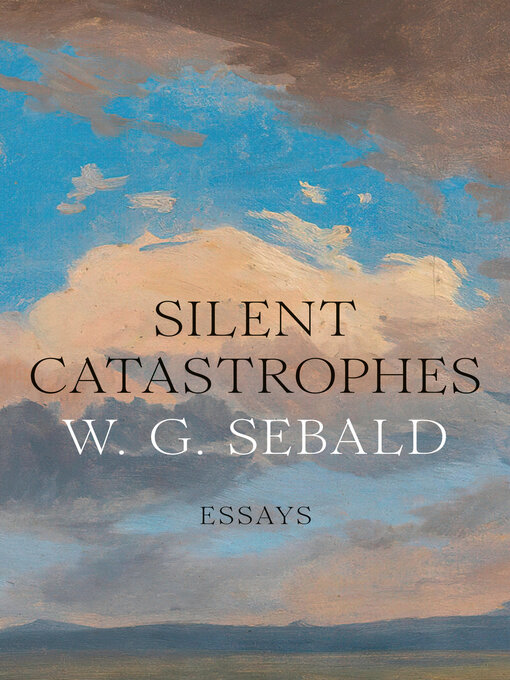Silent Catastrophes brings together the two books W.G. Sebald wrote on the Austrian writers who meant so much to him: The Description of Misfortune and Strange Homeland, published in Austria in 1985 and 1991.
As a German in self-chosen exile from his country of birth, Sebald found a particular affinity with these writers from a neighboring nation. The traumatic evolution of Austria from vast empire to diminutive Alpine republic, followed by its annexation by Nazi Germany, meant that concepts such as "home/land," "borderland" and "exile" occupy a prominent role in its literature, just as they would in Sebald’s own.
Through a series of remarkable close readings of texts by Bernhard, Stifter, Kafka, Handke, Roth, and more, Sebald charts both the pathologies which so often drove their work and the seismic historical forces which shaped them. This sequence of essays will be a revelation to Sebald’s English-language readers, tracing as they do so many of the themes which animate his own literary writings, to which these essays form a kind of prelude. This is an essential new edition from “a writer whose life and work has become a wonderful vindication of literary culture in all its subtle and entrancing complexity” (The Guardian).
-
Creators
-
Publisher
-
Release date
March 25, 2025 -
Formats
-
Kindle Book
-
OverDrive Read
- ISBN: 9780593978658
-
EPUB ebook
- ISBN: 9780593978658
- File size: 1610 KB
-
-
Languages
- English
-
Reviews
-
Kirkus
January 15, 2025
The first English-language publication of two collections of essays by the noted German writer. Published in German in 1985 and 1991, these scholarly essays were written while Sebald was pursuing a university career, before the publication of such unique blends of fact and fiction asAusterlitz andVertigo. The pieces show their academic roots: Ranging from relatively well-known writers (Arthur Schnitzler and Franz Kafka) to those likely to be unfamiliar to English speakers (Adalbert Stifter and Charles Sealsfield), they are dense critical exegeses peppered with phrases such as "In this paper I will try to determine the nature of [Thomas] Bernhard's political, moral, and artistic credo," or "Names such as [Josef] Weinheber and [Karl Heinrich] Waggerl will suffice to demonstrate the idea ofHeimat which persisted well into the 1960s." Heimat, generally translated ashomeland but also connoting a sense of belonging, is an important concept in these essays, or rather--unsurprisingly for Sebald, who spent most of his life as an expatriate--the loss of homeland and/or a feeling of being estranged from it. This notion comes across most powerfully in "A Kaddish for Austria," on Joseph Roth, the Austrian Jewish writer who saw the Holocaust coming; and in "Westwards--Eastwards," about the ambivalent feelings of Jews who left their shtetls for the cities of the Hapsburg Empire. Other themes Sebald discerns as running through Austrian literature from the late 18th century through the 20th include the destruction of nature, the inadequacy of science, psychiatry, and rationalism to completely understand human behavior, and, as translator Catling deftly puts it in the introduction, "the crises of consciousness and identity, particularly bourgeois identity." In addition to the previously mentioned essays, one on Schnitzler and two on Kafka are of general interest, but most are likely too specialized for the average reader. Best suited to academics and those with a serious interest in Austrian literature.COPYRIGHT(2025) Kirkus Reviews, ALL RIGHTS RESERVED.
-
Formats
- Kindle Book
- OverDrive Read
- EPUB ebook
subjects
Languages
- English
Loading
Why is availability limited?
×Availability can change throughout the month based on the library's budget. You can still place a hold on the title, and your hold will be automatically filled as soon as the title is available again.
The Kindle Book format for this title is not supported on:
×Read-along ebook
×The OverDrive Read format of this ebook has professional narration that plays while you read in your browser. Learn more here.

